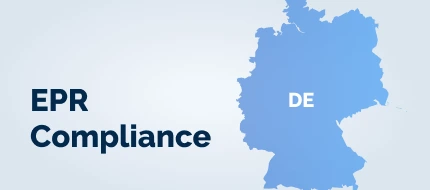If you are a Producer of products in the scope of EPR requirements, you need to follow these high-level instructions to be EPR compliant. Please bear in mind that there are different regulations in each country.
1. Licence your product and report to PRO
In some countries you need to licence your product subject to EPR requirements to a Producer Responsibility Organisation (PRO) responsible in the respective country. Therefore you must declare your sales (of products covered by the different EPR categories) to the respective Producer Responsibility Organisation (PRO) for the applicable reporting period.
2. Register of the respective authority
In some countries you need to register of the respective authority in the country you are introducing your product to. For example in Germany the authority for packaging products would be the „Zentrale Stelle Verpackungsregister (ZSVR)“ and its packaging register „LUCID“. In France the authority would be „ADEME – The French Agency for Ecological Transition“. You will then obtain the EPR registration number(s) needed to prove compliance with EPR requirements, which you need to communicate to Electronic Marketplaces as proof of compliance in order to continue selling your products on these marketplaces.
3. Pay eco-contributions to your PRO
In some countries you need to pay eco-contributions to the PRO you licensed your product with. The PRO will then take responsibility for the collection and recycling of your product.
For a better understanding of our specific EPR obligations in Germany, we recommend using our EPR Compliance Check tool.
